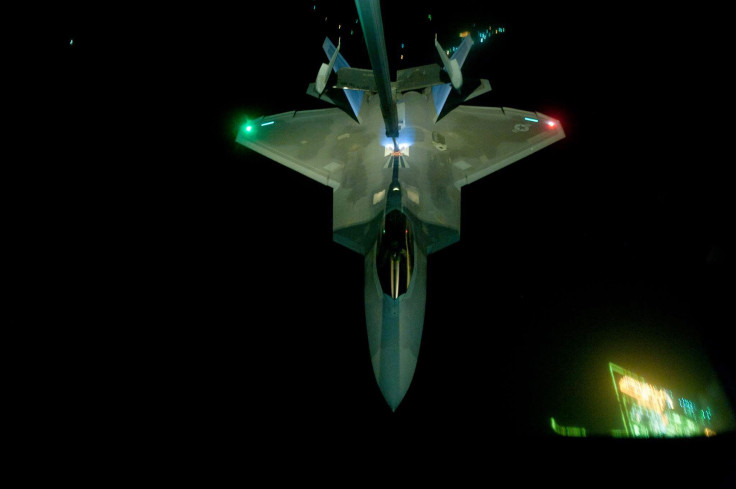ISIS: Coalition Airstrikes Pound Militant Stronghold Of Raqqa In Syria

U.S.-led coalition forces launched a major series of airstrikes against the Islamic State group's self-declared capital, Raqqa, in Syria Saturday, according to reports.
"The significant airstrikes tonight were executed to deny Daesh (ISIS) the ability to move military capabilities throughout Syria and into Iraq," spokesman Lieutenant Colonel Thomas Gilleran said in a coalition statement, cited by the AFP news agency.
The statement described the coalition action as "one of the largest deliberate engagements we have conducted to date in Syria,” adding that the strikes "have severely constricted terrorist freedom of movement.” The airstrikes reportedly targeted ISIS structures and transit routes in the city.
The latest round of strikes come just days the coalition made public news that a U.S. aerial attack killed a senior ISIS leader in Syria last month. Tariq bin Tahar al-'Awni al-Harzi was responsible for recruiting foreign fighters, securing arms and raising funds for the militant group.
Though Saturday's sortie was one of the largest coalition actions to target the militants so-called capital city, the coalition has in recent weeks regularly launched as many or more airstrikes in Syria and Iraq in a day.
The attacks also came on the same day that ISIS released a propaganda video, showing what appeared to be the mass execution of Syrian government soldiers in the ancient Syrian city of Palmyra.
The U.S.-led aerial campaign against ISIS has come in for some criticism in the past, including from the like of Senators John McCain and Lindsay Graham, for failing to halt advances by the militant group.
Last month, Air Force Lieutenant General John W Hesterman III defended the campaign at a press conference, saying that that pilots serving the U.S.-led coalition were killing more than 1,000 militants a month while avoiding casualties among civilians and Iraqi government forces, the Guardian reported.
This week has also seen fierce fighting between rebel forces and Syrian government troops for the Syrian city of Aleppo. Thomas Pierret, a professor at the University of Edinburgh and a Syria expert, said the latest fighting could prove significant.
The recent rebel progress in and around western Aleppo “is the first real progress by the rebels in Aleppo since… July 2013,” he told AFP.
© Copyright IBTimes 2025. All rights reserved.





















